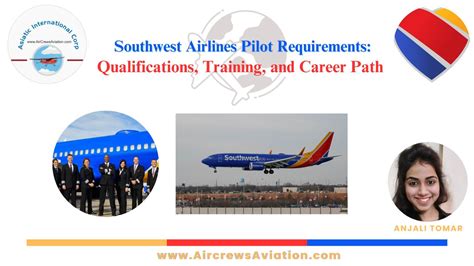Soaring through the skies, navigating the vast expanse above, piloting an aircraft demands a unique blend of knowledge, skills, and training. To master this complex and captivating profession, aspiring pilots embark on a comprehensive educational journey, delving into a diverse array of majors that lay the foundation for their extraordinary careers. This article delves into the academic pathways pilots pursue, highlighting the essential majors that equip them to conquer the skies.

Essential Majors for Aspiring Pilots
Becoming a skilled and proficient pilot requires a strong academic foundation in various disciplines. The following majors provide the core knowledge and competencies that prepare individuals for the multifaceted demands of aviation:
-
Aeronautical Science:
– This specialized major focuses on the scientific and engineering principles of aviation.
– Courses cover aerodynamics, aircraft systems, flight mechanics, and air traffic management. -
Aviation Management:
– This major encompasses the business aspects of aviation, including airport operations, airline management, and aviation safety.
– Graduates gain a deep understanding of the industry’s regulations, financial management, and customer service. -
Meteorology:
– Meteorology plays a crucial role in aviation, providing pilots with insights into weather patterns, forecasting, and atmospheric conditions.
– Courses delve into weather analysis, forecasting techniques, and the impact of weather on flight operations. -
Physics:
– Physics provides a strong foundation for understanding the fundamental principles that govern flight.
– Courses cover topics such as mechanics, thermodynamics, electricity, and magnetism, which are essential for comprehending aircraft performance and flight dynamics. -
Mathematics:
– Mathematics is the language of aviation, enabling pilots to solve complex flight calculations, understand aircraft systems, and make informed decisions in real-time.
– Courses include algebra, trigonometry, calculus, and statistics.
Benefits of Pursuing a Major in Aviation
Earning a degree in aviation offers numerous advantages for aspiring pilots:
-
Enhanced Knowledge and Skills: Aviation majors provide a structured and comprehensive education that equips students with the theoretical knowledge and practical skills required for successful careers as pilots.
-
Industry Recognition: Accredited aviation programs are recognized by the aviation industry and regulatory authorities, enhancing graduates’ credibility and employability.
-
Career Advancement Opportunities: A strong academic foundation in aviation can open doors to leadership and management positions within the industry.
Tips and Tricks for Choosing a Major
Navigating the diverse landscape of aviation majors can be challenging. Here are some tips to guide your decision:
-
Identify Your Interests: Consider your strengths and passions within aviation. This will help you narrow down the majors that align with your career aspirations.
-
Research Different Programs: Thoroughly research the aviation programs offered by various universities and colleges. Compare their curriculum, faculty, and industry connections.
-
Attend Open Houses and Career Fairs: Attend industry events to connect with professionals and learn about the different career paths available.
-
Consider Your Career Goals: Think about your long-term career aspirations. Some majors may provide a better foundation for specific roles within the aviation industry.
Common Mistakes to Avoid
Aspiring pilots should be aware of the potential pitfalls when choosing a major:
-
Selecting a Major Solely Based on Job Title: Focus on the content of the program, not just the title of the major. Ensure the coursework aligns with your interests and career goals.
-
Neglecting Math and Science: Math and science are essential foundations for aviation. Choose a major that provides a strong grounding in these subjects.
-
Ignoring Industry Accreditation: Ensure the aviation program you choose is accredited by a recognized aviation authority. Accreditation ensures the program meets industry standards.
Step-by-Step Approach to Choosing a Major
- Explore Your Interests: Consider your passions and career aspirations within aviation.
- Research Universities and Colleges: Identify institutions with strong aviation programs that align with your interests.
- Attend Open Houses and Career Fairs: Gather firsthand information and connect with industry professionals.
- Consult with Advisors: Seek guidance from academic advisors and industry experts to gain insights into different majors and career paths.
- Make an Informed Decision: Choose a major that aligns with your interests, aspirations, and industry requirements.
Conclusion
Choosing the right major is a pivotal step in the journey of becoming a pilot. By understanding the essential majors, considering their benefits, and following a structured approach, aspiring pilots can lay a solid academic foundation for a successful career soaring through the skies. Remember, the sky is not the limit; it’s the starting point for a lifelong adventure in the world of aviation.
Table 1: Essential Majors for Aspiring Pilots
| Major | Focus |
|---|---|
| Aeronautical Science | Scientific and engineering principles of aviation |
| Aviation Management | Business aspects of aviation |
| Meteorology | Weather patterns and atmospheric conditions |
| Physics | Fundamental principles governing flight |
| Mathematics | Solving flight calculations and understanding aircraft systems |
Table 2: Benefits of Pursuing a Major in Aviation
| Benefit | Description |
|---|---|
| Enhanced Knowledge and Skills | Provides a comprehensive education in aviation theory and practice |
| Industry Recognition | Accredited programs enhance graduates’ credibility and employability |
| Career Advancement Opportunities | Strong academic foundation supports leadership and management roles |
Table 3: Tips for Choosing a Major
| Tip | Description |
|---|---|
| Identify Your Interests | Consider your strengths and passions |
| Research Different Programs | Compare curriculum, faculty, and industry connections |
| Attend Open Houses and Career Fairs | Connect with professionals and learn about career paths |
| Consider Your Career Goals | Think about your long-term aspirations |
Table 4: Common Mistakes to Avoid
| Mistake | Description |
|---|---|
| Selecting a Major Solely Based on Job Title | Focus on program content rather than title |
| Neglecting Math and Science | These subjects provide essential foundations for aviation |
| Ignoring Industry Accreditation | Ensure programs meet recognized industry standards |
